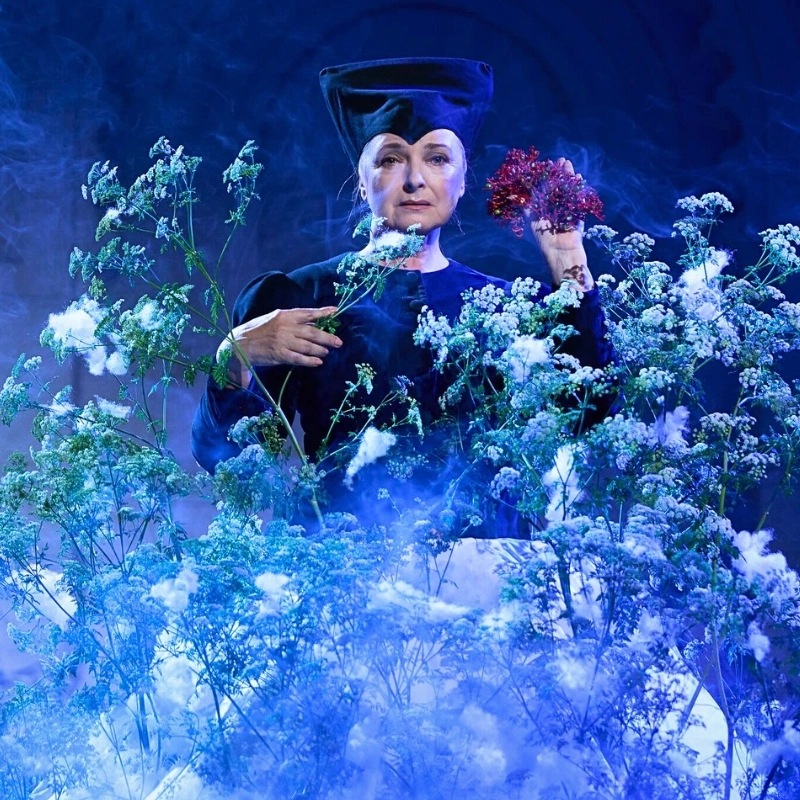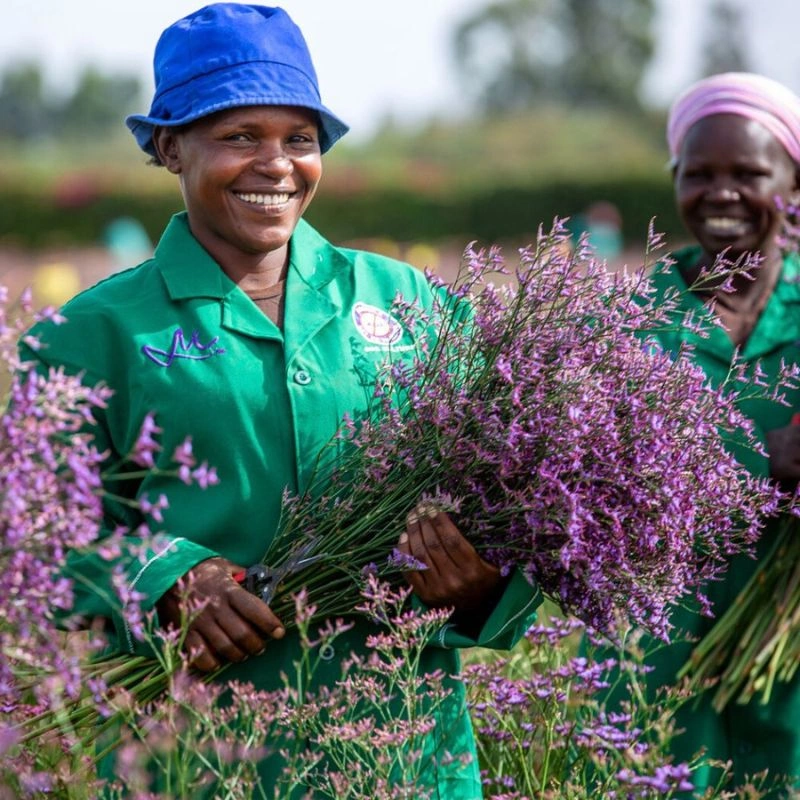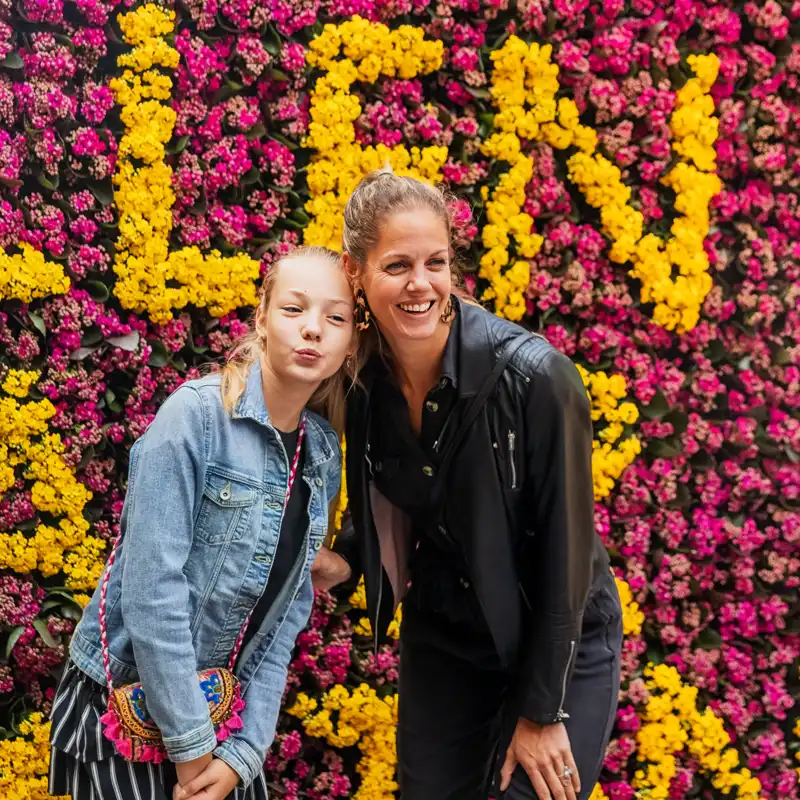As a marketer, I regularly come across fascinating stories that can broaden my view of marketing. One such story is that of Charles Lansdorp, the liaison between the flower sector and the Vatican. For that reason, he is also called 'Mr. Italy' of the flower sector. During a recent lunch with him, I gained insights that are too valuable not to share. Because many marketers should appreciate what Charles does in the flower world!
Meet Charles Lansdorp
What makes Charles Lansdorp so special? Well, here are a few reasons:
First of all, Charles belongs to the select group of Dutch people who have been participating in the Easter project 'Flowers for the Pope' in Rome for years. You will soon read how the flower sector achieved this.
But that's not all: He has also received the prestigious Garofano d'Argento ('Silver Carnation') in Italy. This award is awarded annually to individuals who make a significant contribution to the Italian flower industry. Charles won this prize as a representative of the Dutch flower sector in Italy. This is special because the Netherlands is an important competitor of Italian flower growers.
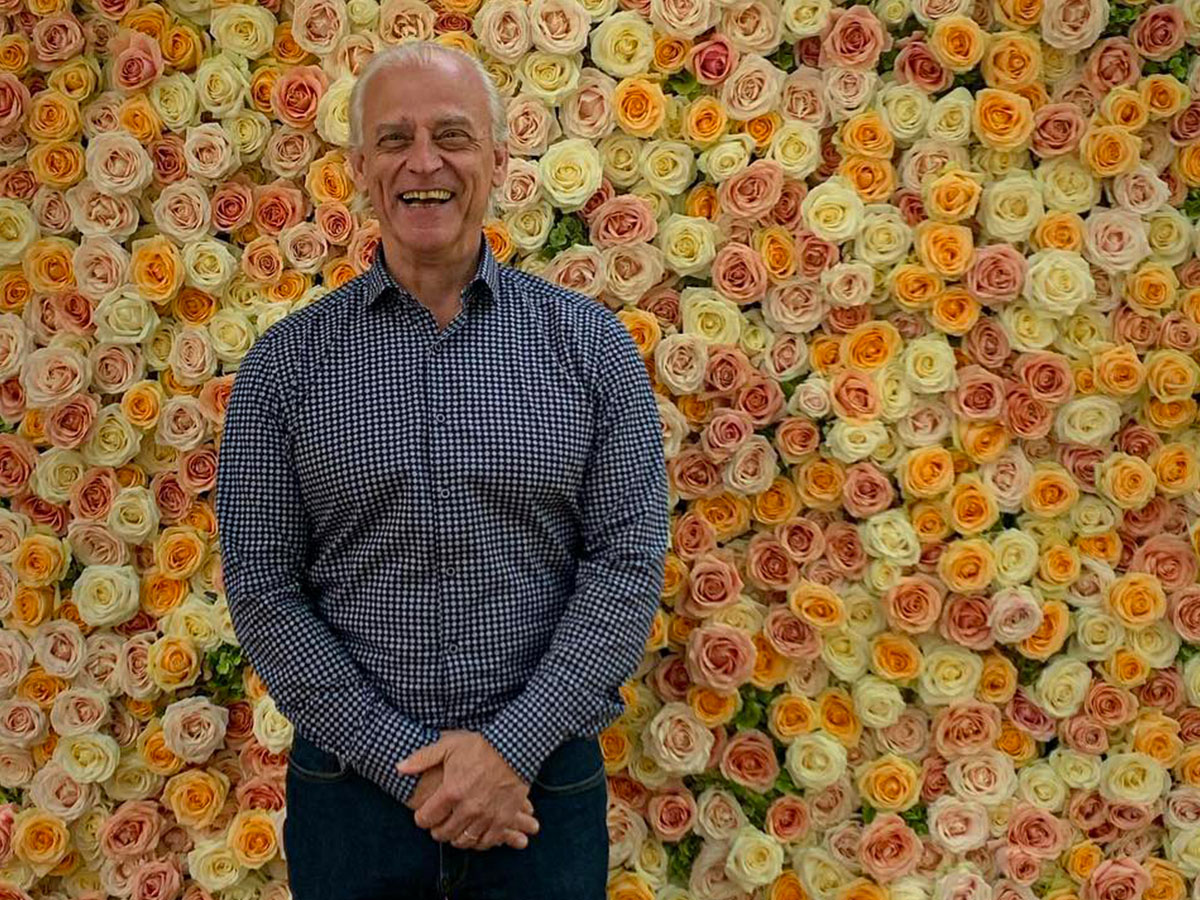
Photo by @_wedding_flowers
You will undoubtedly agree: that is a remarkable achievement. For those reasons, I wanted to know more about him. During an unforgettable lunch with him, he revealed 3 wise lessons:
- Add as much emotion as possible to your products and services
- The collective as the key to flourishing success
- Always invest in marketing = always score
What is Mr. Italy's secret when it concerns the 'growth and flourishing' of his career?
1. Add as Much Emotion as Possible to Your Products and Services
We humans like to believe that we are rational beings, but often we are not. It is not without reason that the proven Cialdini principles are so effective when it comes to convincing customers, for example.
Charles emphasizes the importance of emotion in marketing. Let's stick to the flowers for a moment. Why do you buy flowers for someone? Just take a look:
- You buy red roses for your partner to show how much you love him/her
- You give a coffee bouquet to the neighbors to thank them for their help
- You send flowers to a close acquaintance as a token of sympathy in the event of illness or death
- Or you can bring festive flowers to a loved one's birthday to brighten things up
In other words: every time we give someone flowers, we are actually showing how we feel. And you can use that fact in your marketing: once you know what emotions your product or service evokes in people, you can use that to your advantage.
Charles not only uses emotion consciously in his marketing but also as a powerful tool for a positive impact on society.
Grandparents Day: A Wonderful Idea Against Loneliness
About ten years ago, Charles noticed that more and more Dutch elderly people were struggling with a feeling of loneliness. And that touched him. That's why he decided to do something about it.
Lansdorp is now one of the initiators of a special Italian day for grandparents. This day is known as Festa dei Nonni ('Grandparents Day'). This is an official holiday on which (grand)children show their appreciation for their (grand)parents. Charles saw this as the ideal opportunity to bring 'Grandparents Day' to the Netherlands.
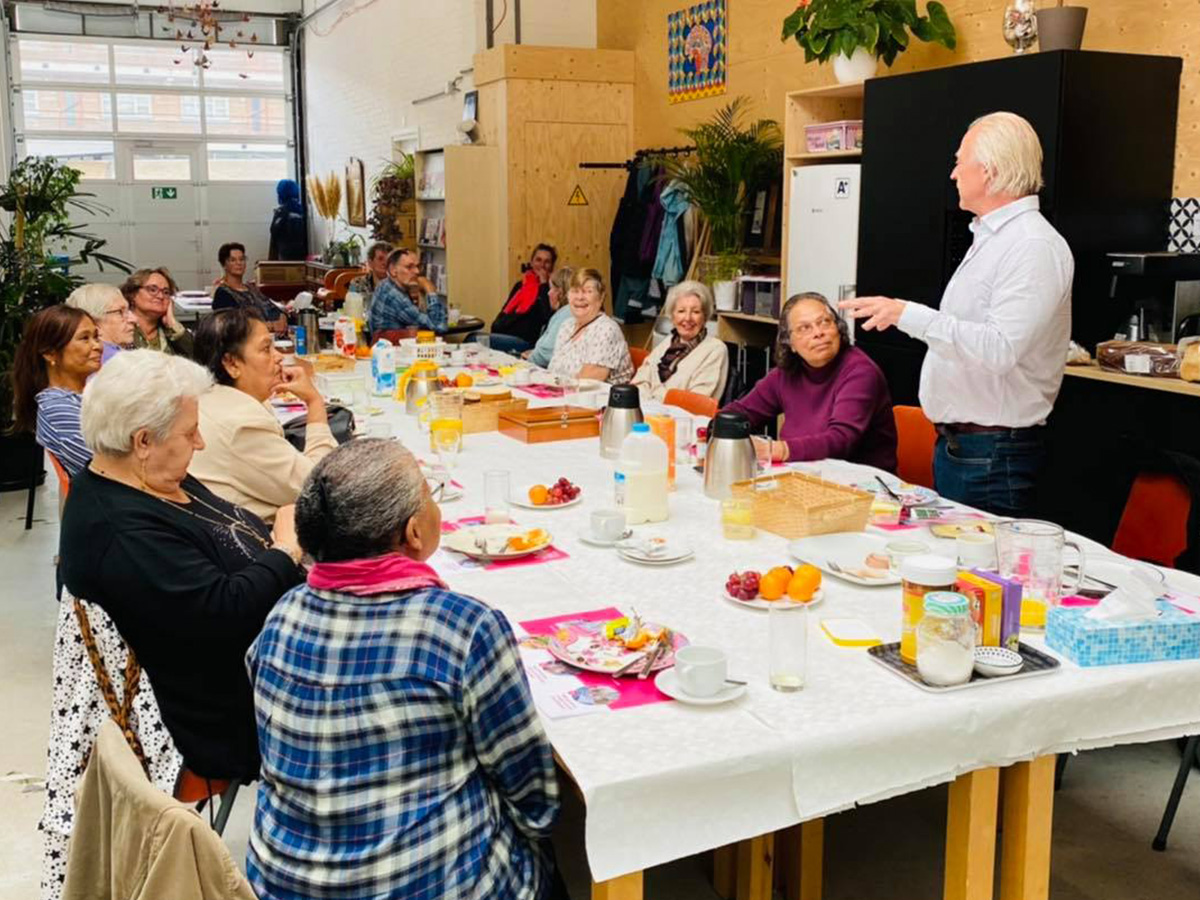
Photo by Speelotheer Pip & Zo
But there was a challenge: how do you create a stronger connection between the old and young generations in our society? In Italy, grandparents almost always live close to their (grand)children and visit each other all the time. In the Netherlands, the culture is slightly different.
Fortunately, he soon found the solution in his own profession, because flowers turned out to be the source of inspiration: “Flowers are products that convey an emotion,” says Charles. “They bring joy, love, appreciation and connection. That makes them a perfect way to connect with the elderly."
And so the Grandparents Day foundation was born. Every year it organizes a large-scale flower campaign for Grandparents Day. In this way, flowers play an important role in reducing loneliness among the elderly.
Oh yes, in 2021 Pope Francis decided to launch a World Day for the Elderly. The Grandparents Day Foundation was asked to take care of the flowers. Thanks to a Dutch gerbera flower, young and old connected in a special way that day.
So this is a wonderful example of how someone combines his sincere social commitment with a modest brand promotion. At the same time, it also shows how you can use a product smartly by linking it to a deeper emotional meaning.
In what way(s) do you add emotions to your products and/or services to achieve your goals?
2. The Collective as the Key to Flourishing Success
Everyone undoubtedly remembers the famous words: "Bedankt voor de bloemen" ("Thank you for the flowers"). This was the Pope's annual Dutch expression of thanks to the Dutch floriculture sector during Easter. Every year, the Dutch floriculture sector ensured that St. Peter's Square in Rome was beautifully decorated with thousands of flowers, bulbs, and plants.
But imagine if those flowers came from five different, competing growers. Would the Pope then thank each individual supplier individually, do you think? That seems highly unlikely to me.
"A collective usually works better than an individual," Charles underlines. "By working together with several Dutch floriculture companies, we managed to position the Netherlands internationally as a flower country." With the positive result that the Pope thanked the Netherlands for the flowers.

Photo by Florale Vormgeving Paul Deckers.
But of course, this collective achievement also brought considerable fame to every floriculture company involved. Moreover, this collaboration strengthened their international competitive position.
Unity and cooperation therefore often lead to greater success than pursuing your ambitions alone. A great lesson that is certainly applicable in the marketing sector!
3. Always Invest in Marketing = Always Score
In every market, there is of course supply and demand. Sometimes there is a lot of demand for a product or service, and sometimes there is a lot of supply. Most companies mainly invest in marketing when demand is high. Initially logical, because in a demand market, it is easier to attract new customers and generate more turnover.
But as soon as the demand market shifts to a supply market, you usually see that less marketing budget is released.
And that, according to Charles, is a missed golden opportunity: “It pays to consistently invest in marketing, even when demand is lower than supply."
Okay, interesting. Why? Charles' vision is as follows:
In a demand market, the product sells itself. There is a lot of demand, so customers are already convinced of the value of your product/service. But: a supply market offers you the perfect opportunity to convince customers of the value of your offer. It is the perfect opportunity to distinguish yourself from competitors. The unique value of flowers, for example, is that they connect people. And right now it is necessary to connect generations for more solidarity. We do this through our flowers and plants.
With good marketing, you show why your product or service is the best choice at such a moment. And if the market later turns into a demand market again, you will immediately be at the top. I can only say one thing: this lunch with Charles Lansdorp was tasty and valuable.
Header and feature image by @vaticannews.


 Photo by @vaticannews
Photo by @vaticannews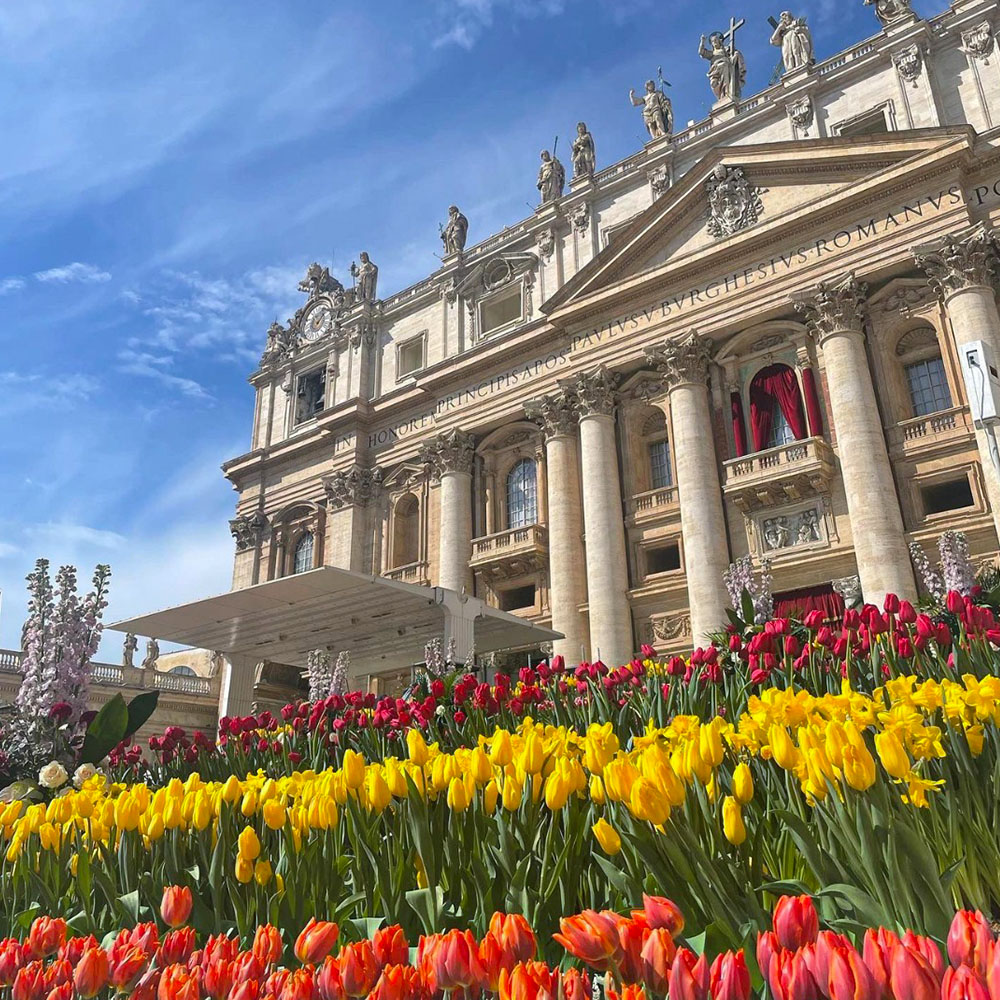 Photo by @vaticannews
Photo by @vaticannews

